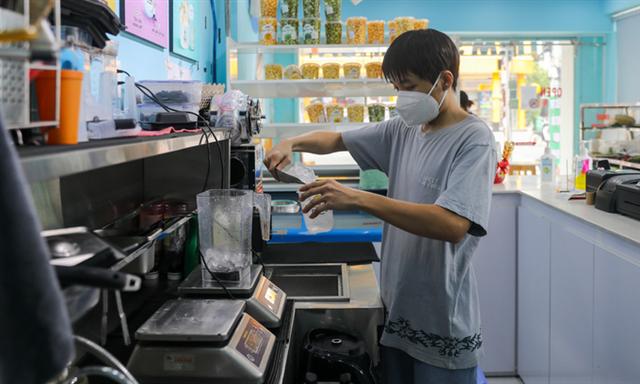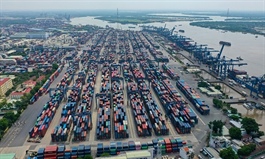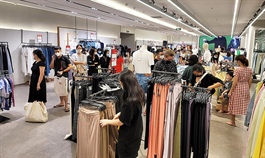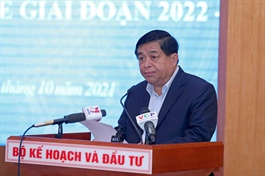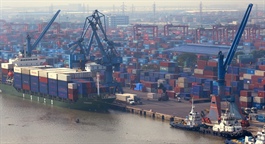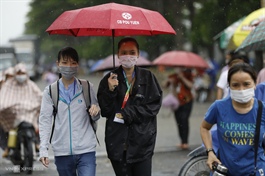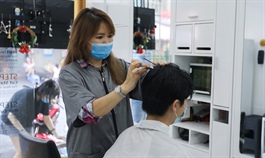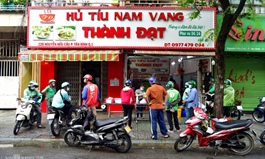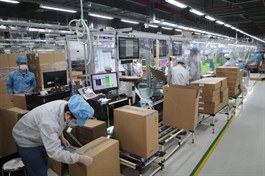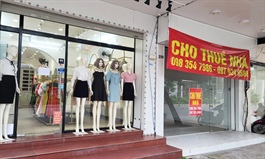President Phuc promises business support for Covid recovery
President Phuc promises business support for Covid recovery
President Nguyen Xuan Phuc on Saturday said there would be specific polices to help businesses recover amid the Covid-19 pandemic.
A food and beverage shop resumes operations after coronavirus restrictions are relaxed in HCMC's District 7, September 16, 2021. Photo by VnExpress/Quynh Tran |
At an online meeting between National Assembly delegates of Ho Chi Minh City and local business representatives, Phuc said around 90,300 businesses had to suspend operations this year, including nearly 16,000 in HCMC that either stopped functioning or were dissolved.
HCMC's economy in the third quarter shrunk by 24.39 percent, and by 4.98 percent for the entire year to date. It's the lowest figure the city has seen in the past decade, Phuc noted.
Phuc said authorities would gradually relax social distancing measures to help the city recover economically, including the introduction of specific policies to support businesses financially and fiscally.
He also advocated for more tax reduction and relief policies to support businesses and to foster sustainable incomes. He requested banks to continue to share the burden with the economy, especially by reducing interests for both businesses and people.
"We don't put profit above everything; we need to distribute some of the profits for production and businesses," Phuc said, adding such an approach should be applied by every bank.
Chu Tien Dung, chairman of the HCMC Union of Business Association, said most fields and jobs were caught by the impacts of Covid-19, forcing them to close down or be suspended since early July. Only certain firms managed to maintain production, albeit with strict coronavirus prevention measures like having staff stay at work.
Businesses which continued operations, mostly to provide essential products like food or medicine, were forced to endure high costs and big losses, preventing them from sustaining themselves for long.
"As customer bases dwindle and not enough revenues are generated to cover costs, incomes are significantly reduced, resulting in not even enough money to pay off debts or interests on time, causing both domestic and international supply chains to be severely disrupted," he said.
Transportation fees have also been a major headache for logistics businesses, including those which import materials. Since August, around 24,000 businesses in HCMC have left the market, a 6.6 percent increase compared to the same period last year. But actual numbers could be higher as many businesses failed to reported their status, Dung added.
Regarding the workforce, around 30 percent of workers lost their jobs, Dung said. The leatherwork field suffered from the heaviest workforce loss at 62 percent, followed by textiles at 42 percent, hotels at 37 percent, and food and beverage at 38 percent.
The lack of employment and income has also placed a burden on social security, forcing hundreds and thousands of migrant workers to leave HCMC for their hometowns. Many refuse to go back to work, or won't choose HCMC to work again. It's a great challenge for businesses in the city when it comes to economic recovery, Dung noted.
Dung proposed to the government and local authorities to provide solutions to encourage workers to return to work once the pandemic has been put under control, for example by helping them with transportation and vaccination.


